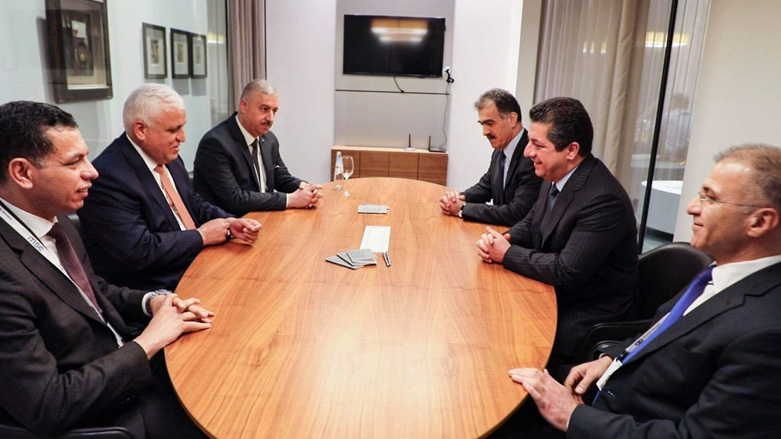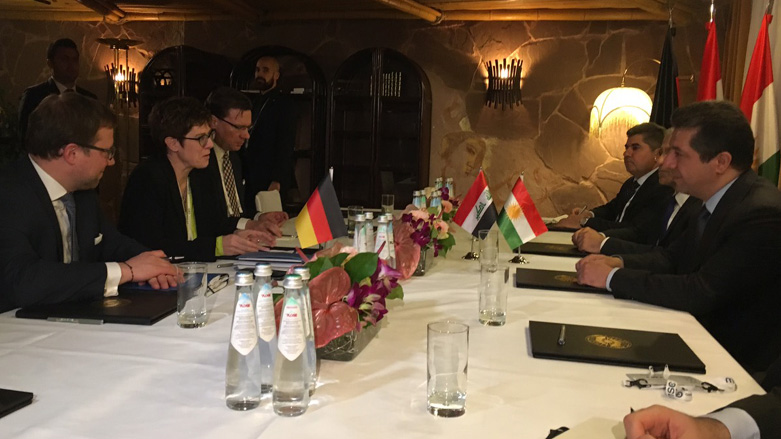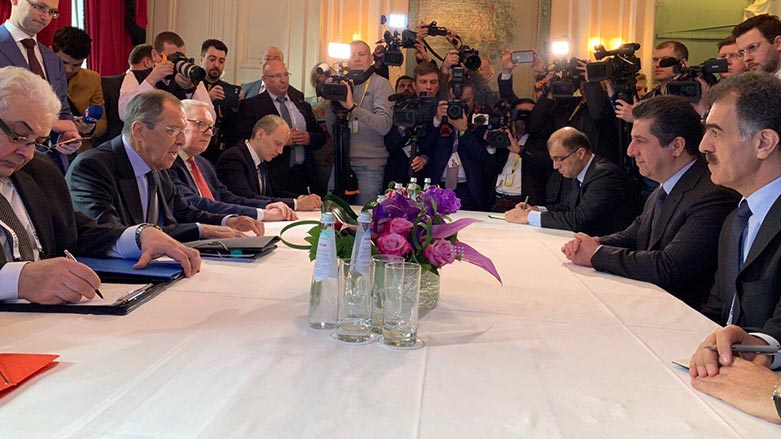Barzani stresses joint security in meeting with Iraqi national security adviser

ERBIL (Kurdistan 24) – Chancellor of the Kurdistan Region Security Council Masrour Barzani on Friday discussed the significance of “joint security mechanisms” between Iraqi and Kurdish forces in a meeting with Iraq’s National Security Adviser, Falih Fayyadh.
The discussion took place in Germany on the sidelines of the 2019 Munich Security Conference.
Both sides addressed “the importance of a return to joint security mechanisms between Peshmerga and Iraqi Security Forces in the disputed territories,” according to Barzani’s press office.
The Kurdish top security chief also “raised concerns” about increasing Islamic State activities in the provinces of Kirkuk, Mosul, Salahaddin, Diyala, and parts of Anbar.
“Stopping ISIL [Islamic State], and combating its ideology, requires sustained cooperation between the Kurdistan Regional Government and the Federal Government,” Barzani stated.
On the disputed province of Kirkuk, they agreed on the importance of normalizing the situation using the roadmap outlined in Article 140 of the Iraqi Constitution, the statement added.
They also discussed the situation in Syria and other regional developments.
The meeting came hours after Barzani’s met with the Russian Foreign Minister Sergey Lavrov. “In the meeting, both sides reaffirmed the historic relationship between the peoples of the Russian Federation and the Kurdistan Region,” a statement from the KRSC office read.
Those participating also reviewed ways to increase the strong economic ties with the Kurdistan Region and Iraq as a whole, the statement added.
The officials also discussed Syria, on which Barzani “raised his concern about the future of the Kurdish people,” and “stressed the importance of a peaceful settlement that guarantees their rights and safety.”
On that front, Barzani “urged Russia to help advance that goal through inclusive talks.”
According to the Munich Security Conference website, over 35 heads of government and heads of state, as well as 50 foreign and 30 defense ministers will attend the three-day event.
Editing by John J. Catherine


